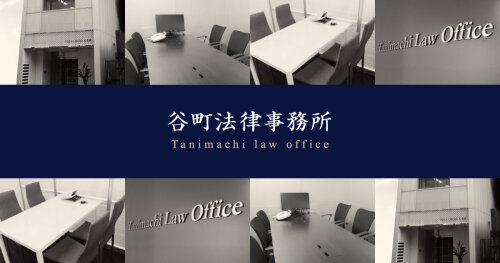Best Merger & Acquisition Lawyers in Japan
Share your needs with us, get contacted by law firms.
Free. Takes 2 min.
Or refine your search by selecting a city:
List of the best lawyers in Japan
About Merger & Acquisition Law in Japan
Merger and Acquisition (M&A) law in Japan deals with the processes through which corporations merge or are acquired by other entities. This field of law encompasses a variety of legal, regulatory, and financial considerations that must be addressed to ensure that such transactions are conducted legally and efficiently. Japan's M&A market has been active, reflecting both domestic consolidation and foreign investments. Key regulatory aspects include anti-trust laws, securities regulations, and compliance with the Companies Act. Understanding these dynamics is crucial for any business considering mergers or acquisitions within Japan.
Why You May Need a Lawyer
There are numerous situations where legal advice is crucial in the context of M&A in Japan:
- Understanding Regulations: M&A transactions must comply with Japanese laws and regulations, which can be complex.
- Due Diligence: A lawyer can help conduct a thorough examination of the entities involved to uncover any legal issues or liabilities.
- Structuring Transactions: Legal advice is essential for determining the best transaction structure to meet strategic and financial objectives while minimizing risks.
- Negotiation and Drafting: Lawyers play a critical role in negotiating and drafting agreements to protect your interests.
- Anti-Trust Concerns: Ensuring compliance with anti-trust laws to prevent monopolistic practices is critical in mergers.
- Cross-Border Transactions: For international M&A, understanding the interplay of domestic and foreign laws is essential.
Local Laws Overview
M&A activities in Japan are primarily governed by several key pieces of legislation, including:
- The Companies Act: Sets the framework for corporate governance, director responsibilities, and shareholders' rights.
- The Financial Instruments and Exchange Act: Governs the conditions under which securities transactions, including M&As, take place.
- The Act on Prohibition of Private Monopolization and Maintenance of Fair Trade (Anti-Monopoly Act): It prohibits anti-competitive mergers and acquisitions.
- Foreign Exchange and Foreign Trade Act: Requires prior notification or approval for certain foreign investment transactions to protect Japan's national security.
- Labor Laws: Addresses the transfer of employees and labor rights in business transfers.
Frequently Asked Questions
What is the process of M&A in Japan?
It typically involves a series of steps including strategy development, target identification, due diligence, valuation and negotiation, deal structuring, agreement execution, and post-merger integration.
Are there any restrictions on foreign companies acquiring Japanese companies?
Yes, foreign acquisitions may require notifications or approval under the Foreign Exchange and Foreign Trade Act, particularly in sensitive industries.
What is due diligence in the context of M&A?
Due diligence is an in-depth examination of a company's business, financial, and legal matters to identify potential risks and inform the decision-making process.
How long does it typically take to complete an M&A deal in Japan?
The timeframe varies depending on the complexity of the deal and can range from a few months to over a year.
What role do anti-trust laws play in M&A?
Anti-trust laws prevent the formation of monopolies and ensure fair competition. M&A deals that may reduce competition could be subject to review by the Japan Fair Trade Commission.
Can employees be dismissed during M&As in Japan?
Japanese labor laws protect employees' rights, so dismissals must follow strict legal procedures and typically require economic or operational reasons.
What are takeover defenses in Japanese M&A?
These are strategies employed by a target company to prevent or defend against an unwanted takeover, such as poison pills or white knight strategies.
How does the Tender Offer system work in Japan?
This is a public, open offer to all shareholders to sell their shares at a specified price, often used as a method of acquiring control of a listed company.
What aspects of M&A require disclosures to shareholders?
Material information affecting the company's financial or business position must be disclosed to ensure informed decision-making by shareholders.
Are there any specific laws governing the integration post-M&A?
No specific laws govern integration, but general legal obligations such as compliance with employment laws and contractual terms continue to apply.
Additional Resources
For further assistance and information, consider reaching out to the following resources:
- Japan Fair Trade Commission: Provides guidelines on anti-trust considerations.
- Ministry of Economy, Trade and Industry: Offers insight on foreign trade regulations.
- Japan External Trade Organization (JETRO): A resource for understanding foreign investments.
- Corporate law firms: Many specialize in M&A advisory and can be invaluable in complex transactions.
Next Steps
If you require legal assistance in M&A activities in Japan, consider taking the following steps:
- Identify Your Needs: Clearly define what you hope to achieve from the M&A transaction.
- Research Law Firms: Look for law firms with expertise in Japanese M&A law and a track record of successful transactions.
- Schedule Consultations: Meet with potential legal advisors to discuss your case and their approach to M&A.
- Develop a Strategy: Work with your lawyer to develop a step-by-step approach to achieve your M&A goals.
These steps will help ensure that you are well-prepared and legally compliant throughout the M&A process in Japan.
Lawzana helps you find the best lawyers and law firms in Japan through a curated and pre-screened list of qualified legal professionals. Our platform offers rankings and detailed profiles of attorneys and law firms, allowing you to compare based on practice areas, including Merger & Acquisition, experience, and client feedback.
Each profile includes a description of the firm's areas of practice, client reviews, team members and partners, year of establishment, spoken languages, office locations, contact information, social media presence, and any published articles or resources. Most firms on our platform speak English and are experienced in both local and international legal matters.
Get a quote from top-rated law firms in Japan — quickly, securely, and without unnecessary hassle.
Disclaimer:
The information provided on this page is for general informational purposes only and does not constitute legal advice. While we strive to ensure the accuracy and relevance of the content, legal information may change over time, and interpretations of the law can vary. You should always consult with a qualified legal professional for advice specific to your situation.
We disclaim all liability for actions taken or not taken based on the content of this page. If you believe any information is incorrect or outdated, please contact us, and we will review and update it where appropriate.
Browse merger & acquisition law firms by city in Japan
Refine your search by selecting a city.
















